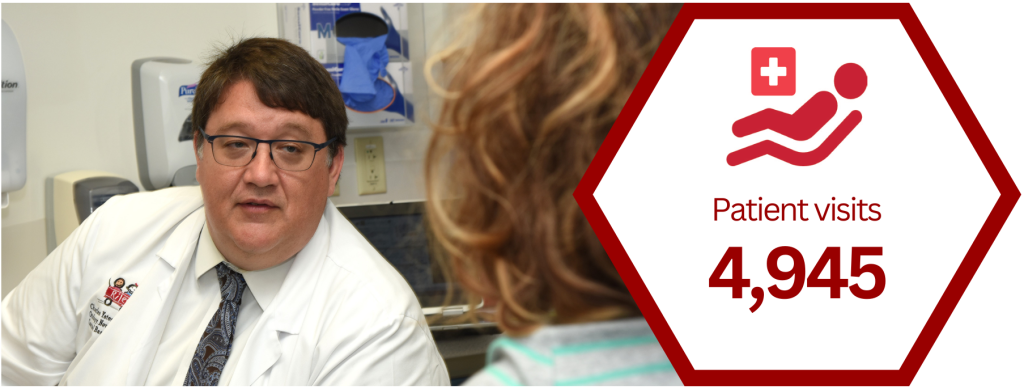Otology / Neurotology
Summary
The Division of Otology/Neurotology leads the way as experts in skull base surgery and interventions for hearing loss. Tumors of the lateral skull base occur in areas near the ear and brainstem. Due to the location, skull base tumors can affect the delicate nerves and blood vessels near and around the brain.
The comprehensive skull base team in the Division of Otology/Neurotology evaluates and treats patients with benign (noncancerous) and malignant (cancerous) tumors of the skull base. The team collaborates closely with physicians in other departments, most specially with neurological surgery.
Neurotologists are experts in treating Acoustic Neuroma—also known as vestibular schwannoma—in patients. This benign skull base tumor grows along the vestibular nerves, close to the hearing nerve and the facial nerve, which allows a person to smile. These tumors have the potential to affect a patient’s balance and often cause hearing loss. If the tumors become large enough, they can compress the brainstem. Surgeons in the division also are leaders in repairing spontaneous cerebrospinal fluid leaks, the highest volume in Indiana.
Our faculty have excellent facial nerve outcomes while achieving high rates of total tumor removal. In addition to clinical care, our neurotologists—Charles Yates, MD, Rick Nelson, MD, PhD, and Sarah Burgin, MD—study the outcomes and biology of acoustic neuroma. Partnering with the department’s 3D Stem Cell Biology Research Group, these researchers were the first to design a mouse model with vestibular schwannomas.
Fellowship
In 2021, the division announced its new neurotology fellowship. This two-year ACGME accredited fellowship offers a master surgical approach during the first year of the fellowship and progresses to tumor removal and cranial nerve conservation surgery during year two.
The program’s interdisciplinary approach to patient care offers a variety of experiences that range from neurotology cases in the operating room to practical experience with patients undergoing vestibular testing to empirical audiological training.
Fellows are also afforded an extensive variety of research opportunities, including the chance to pursue a two-year research project in any area of the fellow’s choosing.

